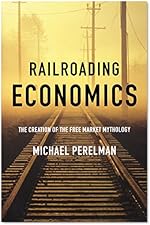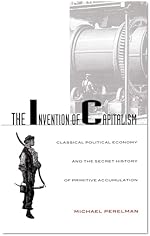Archive for February, 2009|Monthly archive page
Crop Scientists Say Biotechnology Seed Companies Are Thwarting Research.
Pollack, Andrew. 2009. “Crop Scientists Say Biotechnology Seed Companies Are Thwarting Research.” New York Times (19 February).
“Biotechnology companies are keeping university scientists from fully researching the effectiveness and environmental impact of the industry’s genetically modified crops, according to an unusual complaint issued by a group of those scientists. “No truly independent research can be legally conducted on many critical questions,” the scientists wrote in a statement submitted to the Environmental Protection Agency. The E.P.A. is seeking public comments for scientific meetings it will hold next week on biotech crops.” Continue reading
The perversion of humanitarian activities
The United States has a long history of using humanitarian ventures as a cover for promoting its own self-interest. Here is an example I found from the early 20th century regarding Herbert Hoover’s relief work following World War I.
Andelman, David A. 2008. A Shattered Peace: Versailles 1919 and the Price We Pay Today (New York: J. Wiley).
31: “Colonel Edward House recognized that the peace was likely to be won by the power that had the best understanding of the situation on the ground of each of the territories that the delegates were about to carve up and remodel. So in mid-November House and Van Deman hit on an original approach to the rapid establishment of an effective spy network throughout Europe. Van Deman described it in his own words: “It will be remembered at the time Herbert Hoover had been given charge of providing food and relief for certain devastated sections of Europe. We desired to send with Mr. Hoover’s workers going into those areas certain intelligence agents who were familiar with the country, but to this Mr. Hoover violently objected.”
31: “It was a brilliant system of the utmost simplicity. Herbert Hoover, who would become the 31st president of the United States, then headed network of private relief workers in the defeated nations. They could move with total freedom and without a scintilla of suspicion among all the subject people of Europe. Indeed, as the dispensers of life-giving food and water they would be welcomed as saviors. The only remaining problem was to persuade Hoover himself. House insisted as his allies you Gibson, a gifted young American diplomat. While serving as principal aide to Hoover and his relief efforts in Belgium during the war, and Gibson also managed to distinguish himself in gathering battlefield intelligence by wriggling through German lines. House now promised Gibson a cushy post as coordinator of the intelligence effort at the U. S. Legation in Vienna if he would persuade Hoover to go along with the plan.”
32: “Gibson was surpassingly discreet, but he and House prevailed. In a face-to-face showdown in Paris was Col. House, Hoover, who never really managed to overcome his roots as a simple mining engineer from Iowa was forced to give in. The coordinator of the largest international relief effort ever mounted was persuaded to the use of his pan-European organization as a cover for the first network of spies the United States ever fielded in a coordinated fashion across the continent.”
Continue reading
California Budget Follies
California is doing whatever it can to mismanage its way to disaster. Here is a graphic showing how the California State University system keeps piling on administrators, while expecting the staff and faculty to take on more responsibilities. In so far as teaching is concerned, the model is becoming more like No Child Left Behind — more and more silly ways to generate numbers that have nothing to do with education.
With all the superficial complaints about education, virtually nobody in authority takes issue with the managerial bloat. Anyway, enjoy the graphic.
Bard College has fired Joel Kovel
I am biased since I admire Joel. Lou Proyect has done an excellent job in putting the case into context.
http://louisproyect.wordpress.com/2009/02/19/bard-college-terminates-joel-kovel/
Great Moments in Labor Relations
In a Letter from the Gatling Gun Company to B&O Railroad in 1877: “… we have the honor to suggest that you strengthen yourselves now against such emergencies in the future, by providing yourselves with Gatling guns.” Full letter here:
What Congress forgot to ask the bankers
Yesterday when the bankers were telling Congress how much they have been lending, I don’t know of anyone who asked them how much of these loans in response to pre-existing lines of credit. One of the ways banks try to get fees is to collect interest on lines of credit — money that they have not yet lent, but stand willing to lend in the future. Banks are contractually obligated to fulfill these loans.
With credit tightening, many borrowers have taken advantage of these lines of credit. Doing so, they give the impression that banks are increasing their loans, but the arrangements for these loans, in effect, may have been made quite some time ago.
Why Rescue Banks?
What is it that a bank really does? In college, many decades ago, I was taught that banks served to bundle many small investments to make them available for investors to create productive businesses. More recently, the idea became popular that banks specialized in accumulating information that made them ideally suited to determine which investment projects would be viable and which would lack merit. Of course, with the demise of Glass-Steagall, banks did accumulate massive amounts of information — especially when the same company ran a person’s bank, stockbroker, insurance company, and credit card. But that kind of information is something entirely different.
Continue reading
The New Deal in California
Mark Thoma posted this from Gray Brechin’s work, which I mentioned
yesterday. It is incomplete, but it suggests the extent of the legacy of the New Deal.
http://economistsview.typepad.com/economistsview/2009/02/new-deal-projects-in-california.html
Korean Introduction: Manufacturing Discontent
I would appreciate any comments on my draft introduction to a Korean edition of Manufacturing Discontent.
manufacturing-discontent-preface-in-korean-edition
How to Set Up a Right Wing Think Tank
With the economy tanking and people having to scramble for good jobs — here is an opportunity too good to be missed: How to set up a right wing think tank.
Read this & enjoy.
http://www.archive.org/details/HowToStartARightWingThinkTank
 Leave a comment
Leave a comment
 25 – The Confiscation of American Prosperity: From Right-Wing Extremism and Economic Ideology to the Next Great Depression
25 – The Confiscation of American Prosperity: From Right-Wing Extremism and Economic Ideology to the Next Great Depression 30 – Manufacturing Discontent: The Trap of Individualism in Corporate Society
30 – Manufacturing Discontent: The Trap of Individualism in Corporate Society Class Warfare in the Information Age
Class Warfare in the Information Age Railroading Economics: The Creation of the Free Market Mythology
Railroading Economics: The Creation of the Free Market Mythology Steal This Idea: Intellectual Property Rights and the Corporate Confiscation of Creativity
Steal This Idea: Intellectual Property Rights and the Corporate Confiscation of Creativity The Invention of Capitalism: Classical Political Economy and the Secret History of Primitive Accumulation
The Invention of Capitalism: Classical Political Economy and the Secret History of Primitive Accumulation The Perverse Economy: The Impact of Markets on People and the Environment
The Perverse Economy: The Impact of Markets on People and the Environment